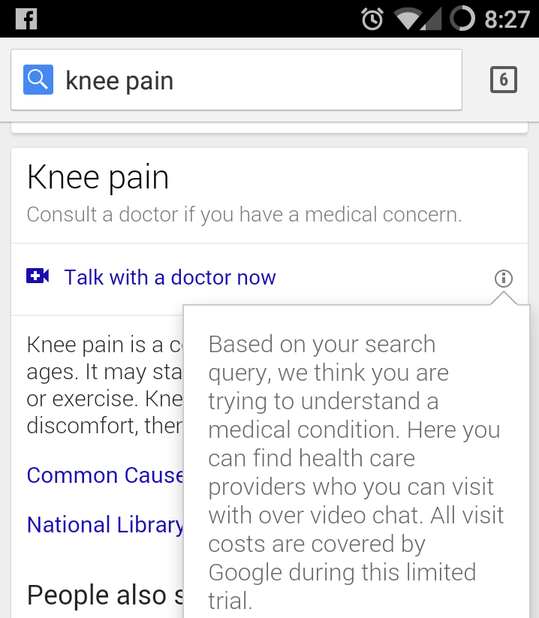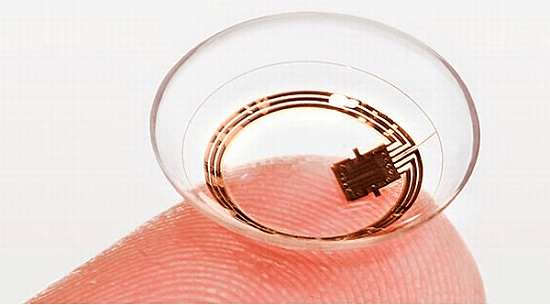5. Telehealth

Although Glass is being boasted as a useful telehealth tool by medical professionals, Google is dipping its toe into the Telehealth space by appealing to consumers and the self-diagnosis trend. According to Engadget, Google entered the telehealth space last fall by testing Healthcare Helpouts, a feature that connects consumers that search for healthcare symptoms and questions with physicians who can answer them via video chat.
Although the feature is still fresh, Healthcare Helpouts could be more than just an appealing tool for consumers. It also has the potential to provide physicians on a tight budget with a HIPAA-compliant solution to teleconference with patients.
6. Smart Contact Lenses

Detectable Ingestibles aren’t the only impressive venture on Google’s list. Last year, Google teamed up with European drug maker Novartis to develop a smart contact lens that can monitor a wearer’s blood sugar levels. The prototype uses miniature sensors and a micro-thin radio antenna to track glucose levels that can then be uploaded to a mobile device and monitored by patient and physician alike.
The lenses could be the first useful disease management and population health tool of its kind. According to the New York Times, Google’s agreement with Novartis will also seek to solve presbyopia, in which ageing eyes have trouble focusing on close objects. Novartis hopes the lens technology will help to restore the eye’s ability to focus, almost like the autofocus on a camera.
7. Diagnostics
Last February, Google entered a partnership with Quest Diagnostics to facilitate and enhance communications between physicians and patients by providing patients with secure electronic access to their diagnostic laboratory testing information from more than 100,000 physicians nationwide. As stated in its press release, Quest Diagnostics is developing solutions that will provide patients, through their physicians, with easy to use and secure electronic access to their diagnostic results.
“Laboratory data is the foundation of many patients’ medical histories and an important driver of treatment decisions made by physicians and their patients,” said Joyce G. Schwartz, M.D., vice president and chief laboratory officer, Quest Diagnostics. “Working with Google Health, Quest Diagnostics will help patients collaborate with their physicians to make informed health care choices based on relevant diagnostic information.”
Overall, Google has its work cut out for itself, as it takes these bold and risky steps into healthcare. Still, if any entity has the power and wherewithal to make these long-held health visions a reality, it’s Google. The company has already created data tools that reveal so much about our society’s health.
For example, Google has devised a way to decipher flu trends in any given location by monitoring relevant search terms. Therefore, if knowledge is power, then Google has plenty of it. Still, as far as what innovations will take off for the moon or take a backseat, we will have to wait, see—and of course— query, to find out.
